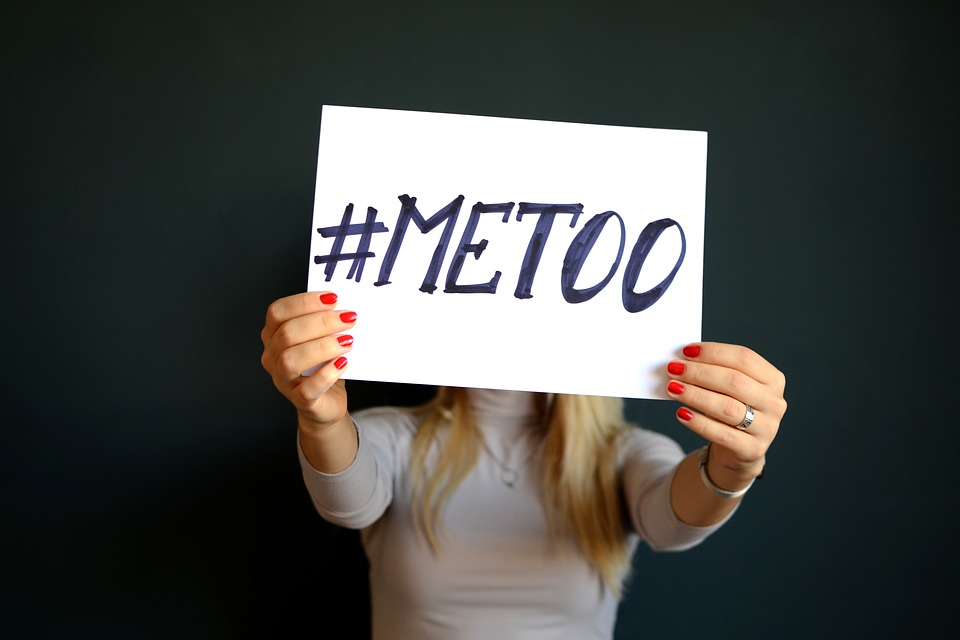
Over a decade before #MeToo took over the internet, activist Tarana Burke was working to empower and heal young survivors of sexual violence. In October 2017, Burke’s lifework was thrust into the national spotlight, as the phrase "Me Too" became a viral social media hashtag to shed light on the abhorrent prevalence of sexual harassment and sexual assault in society. The #MeToo movement has sparked a long-overdue public conversation about the pervasiveness of sexual misconduct and has provided a platform for survivors to share their stories and find resources for healing, while also vowing to shift cultural norms and create long-term, systemic change.
It is fitting that this movement gained significant momentum last October, as October is also Domestic Violence Awareness Month (DVAM). DVAM has evolved from the single "Day of Unity" originally conceived by the National Coalition Against Domestic Violence in October 1981 to include an entire month dedicated to domestic violence prevention. The month is aimed at providing resources for those currently experiencing abuse and raising awareness of public responsibility in eradicating domestic violence from our communities.
Throughout the decades, our understanding of domestic violence has evolved to acknowledge that marital relationships do not have a monopoly on violence and manipulation. As a result, the term “intimate partner violence” was introduced to encompass this broadened understanding of violence in relationships. Intimate partner violence may include physical violence, sexual violence, emotional/psychological abuse, threats, or other attempts to exert control. While some may use domestic violence and intimate partner violence interchangeably, the latter is now the preferred term amongst advocates, as it recognizes that abuse can exist in any type of intimate relationship, regardless of sexual orientation, marital status, or gender.
Intimate partner violence is inseparable from the injustices exposed by the #MeToo movement. Current statistics show that nearly 20 people (more than 10 million individuals) are physically abused by an intimate partner every minute, and 1 in 3 women and 1 in 6 men have been victims of some type of physical or sexual violence within their lifetime.
What can we do to lift up the progress of #MeToo during DVAM? How can we inspire change beyond social media and end these vicious cycles of abuse?
The RAC is currently working with other interfaith groups to push for a reauthorization of the Violence Against Women Act (VAWA). VAWA was passed in 1994 and serves as our nation’s most comprehensive resource for survivors of intimate partner violence (including domestic and dating violence), sexual assault, and stalking. VAWA also allocates federal funding for survivor services and for coordinated community responses to gender-based violence through grants. Many of the leading organizations in the fight to eradicate relationship violence were funded through VAWA, such as the National Resource Center on Domestic Violence.
VAWA has been renewed with bipartisan support three times since its original authorization. Each reauthorization is an opportunity to reassess the strengths of the current bill as well as strategize ways to fill in gaps to better protect and serve the needs of survivors.
We are pushing for six areas of improvement with the latest Violence Against Women Reauthorization Act, which was introduced into the House in July: increased funding for prevention programs, expanding tribal jurisdiction, closing firearm loopholes for abusers, strengthening public housing protections for survivors, implementing alternative justice responses focused on survivor autonomy, and extending financial support services to survivors.
VAWA has had a significant impact on curbing violence, but it is currently only authorized until December 7th. Tell your Representative to co-sponsor H.R. 6545, which will reauthorize this critical protection against gender-based violence!
The Mishnah teaches that violence has repercussions far greater than the act itself, “One who injures another person is liable on five counts (that is, responsible for paying for five factors): for the injury itself, for pain, for healing, for loss of time, and for embarrassment” (Bava Kamma 8:1). Our tradition also implores us not to “stand idly by the blood of [our] neighbor” (Leviticus 19:16). Act now to uphold this sacred commandment and help us put a stop to all kinds of gender-based violence.
This blog originally appeared on the RAC's blog.
Related Posts

Continuing to Educate and Empower People Together

My Challah-Making Experience


